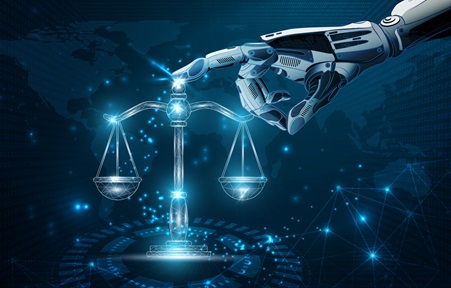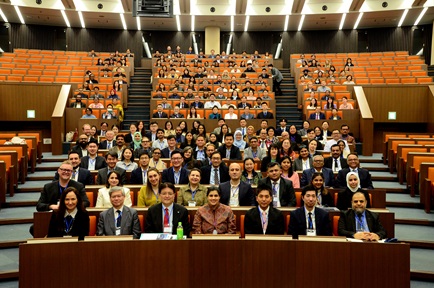How GenAI is Redefining Assessment and Learning
Why It Matters
Generative AI (GenAI) is reshaping higher education, particularly in how students are assessed and prepared for the workforce. This revolutionary shift has far-reaching implications for educators, students, and institutions, creating both challenges and opportunities.
Key Takeaways
· Traditional assessment methods fall short in GenAI-powered environments, demanding innovative redesigns.
· New learning outcomes prioritise career-driven competencies and lifelong skills.
· Collaboration between cutting-edge assessments and GenAI tools is raising the bar for education standards.
Rethinking Traditional Assessments for Creativity and Critical Thinking
For decades, higher education has relied on traditional assessment methods like written exams, essays, and quizzes. However, these approaches are becoming inadequate in the GenAI era. With tools like ChatGPT allowing students to effortlessly generate essays or solve problems, questions arise about academic integrity and the relevance of these assessments in evaluating genuine understanding.
Educators increasingly recognise that overreliance on traditional methods can hinder learning by failing to nurture critical thinking and creativity. Moreover, such assessments often ignore the personalised, exploratory learning opportunities that GenAI fosters.
Addressing these gaps requires innovative approaches that promote deeper engagement and adaptability. While traditional methods have their place, they must evolve to meet the demands of a GenAI-driven world.
Innovative and GenAI-Incorporated Assessments
Educators are pioneering two key solutions: innovative assessments and GenAI-incorporated assessments.
Innovative assessments integrate interactive and creative elements in GenAI-facilitated learning environments. Examples include personalised assessments generated by AI, self-assessments where
students make decisions based on ChatGPT’s insights, and open-ended assessments designed to encourage originality and critical thinking. These redesigned assessments methods foster higher-order thinking skills, preparing students for dynamic real-world challenges.
GenAI-incorporated assessments go a step further by embedding AI tools directly into the learning process. In these, students interact directly with GenAI tools to critique outputs, collaborate on projects, or develop creative solutions. For instance, students might use text-to-image tools to showcase their creative thinking during a hands-on workshop, complete game development tasks with AI support, or use ChatGPT to complete group-based projects to demonstrate their communication and collaboration skills instead of traditional written summative assessments.
Transforming Learning Outcomes with GenAI
The rise of GenAI has highlighted two transformative learning outcomes:
Career-driven competencies: GenAI equips students with critical professional skills. For instance, programming, data analysis, and creative writing are enriched by GenAI tools that provide real-time assistance and feedback. Moreover, integrating ethics into AI use has become an essential learning component, ensuring students develop a responsible approach to technology. These competencies are critical in equipping students with the skills needed to excel in the rapidly evolving job market, where AI literacy is becoming a core requirement.
Lifelong learning skills: Broader skills such as critical thinking, collaboration, and emotional intelligence are increasingly prioritised. GenAI environments enable students to hone these abilities through interactive and adaptive learning processes. For example, students might engage in collaborative projects that mimic workplace scenarios, supported by AI tools that enhance teamwork and problem-solving. Furthermore, GenAI promotes metacognition and self-regulation, helping students identify their strengths and areas for growth. These outcomes position learners not just for academic success but for long-term adaptability in an AI-driven world.
Business Implications
The adoption of GenAI in education has far-reaching implications for businesses and institutions. Employers are placing greater value on graduates who can navigate AI tools effectively while showcasing creativity, ethical decision-making, and critical thinking.
To meet these evolving demands, educational institutions must partner with industries to align assessment practices with real-world needs. Integrating AI into assessments can create a talent pipeline that meets the challenges of fast-paced, innovation-driven sectors.
Moreover, institutions embracing GenAI-led innovations position themselves as pioneers in education. By doing so, they attract forward-thinking students and partners eager to leverage the opportunities offered by a future-focused learning environment.
Generative AI is revolutionising education, challenging conventional norms and unlocking new possibilities. By embracing this transformation, educators and institutions can prepare students to thrive in a dynamic, AI-driven world.
Authors & References
Authors: Xiaojing Weng (The Education University of Hong Kong), Qi Xia (Zhejiang University), Mingyue Gu (The Education University of Hong Kong), Kumaran Rajaram (Nanyang Business School, NTU), Thomas K. F. Chiu (The Chinese University of Hong Kong).
Original Journal Article: Assessment and Learning Outcomes for Generative AI in Higher Education, Australasian Journal of Educational Technology, 2024, 40(6).
---
For more research, click here to return to Knowledge Lab.







